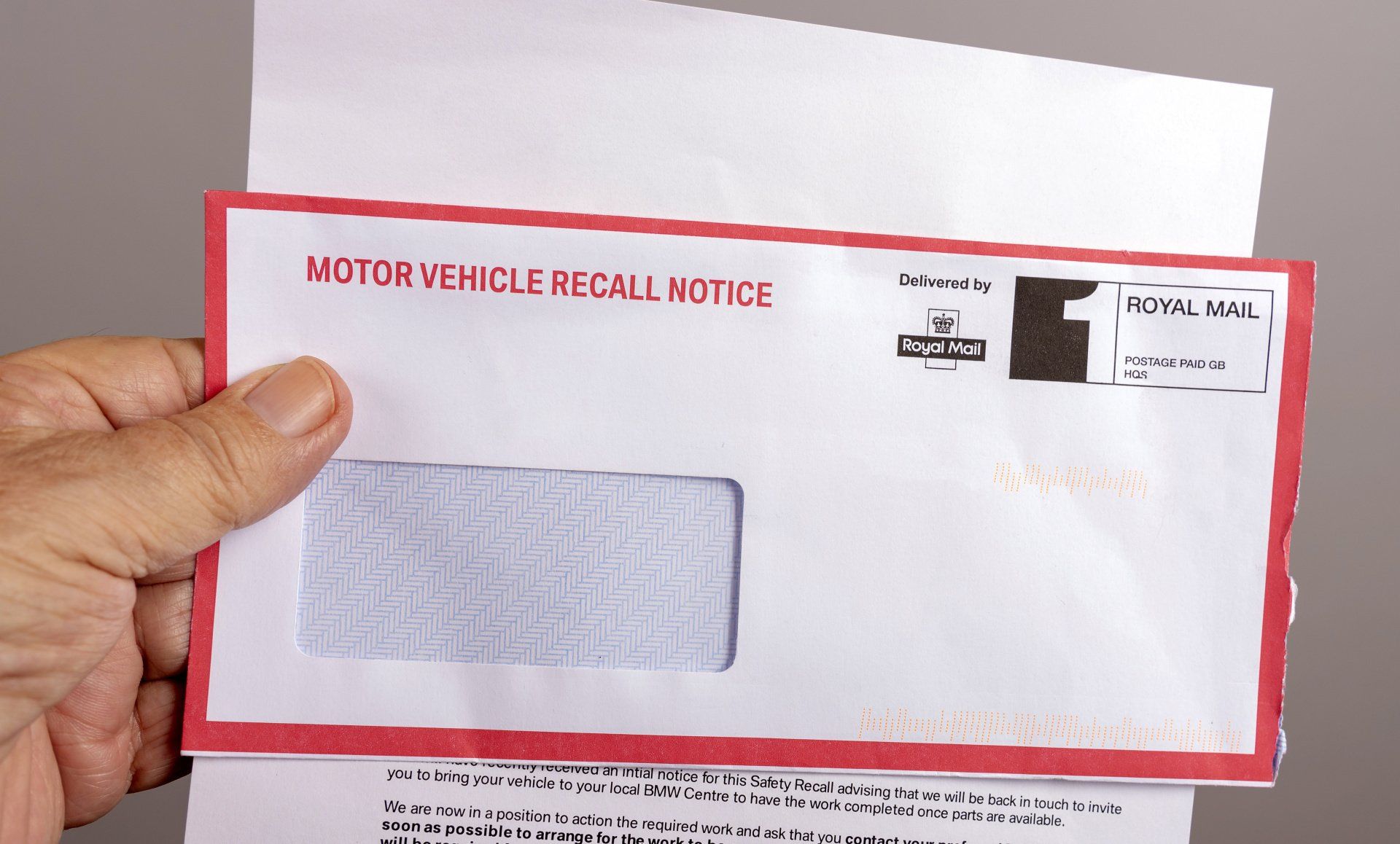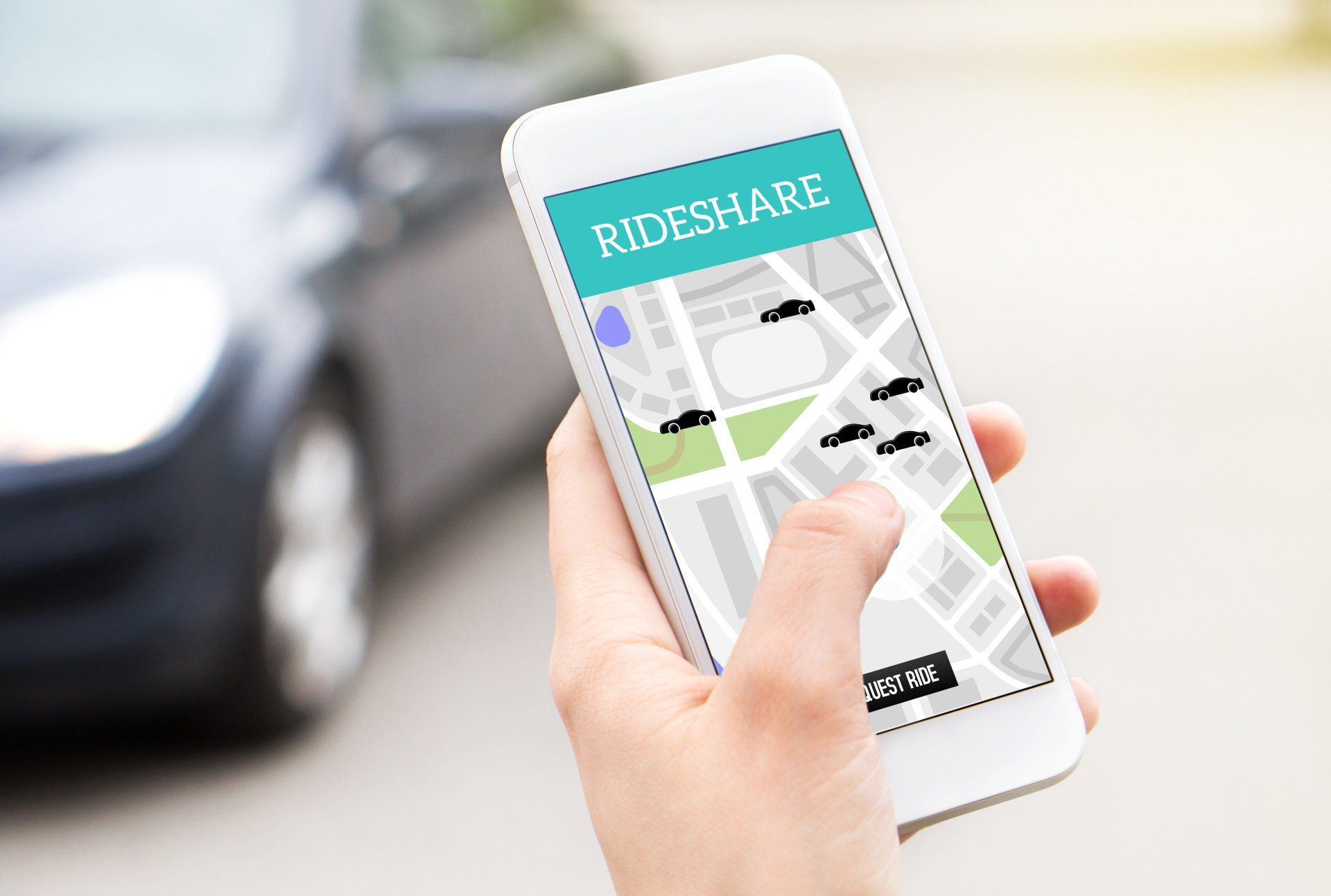What Are the Traffic Rules for a Motorcycle in Georgia?
Key Takeaways: Licensing and Insurance: In Georgia, motorcycle riders must obtain a Class M license and carry minimum insurance coverage to legally...
6 min read
Juan Carlos : 9/10/24 11:55 AM
Key Takeaways:
Millions rely on rideshare services like Uber and Lyft for convenient transportation.
With the increasing popularity of these services, rideshare accidents have become all too common.
These accidents bring complexities beyond typical motor vehicle accidents.
They involve multiple insurance policies, rideshare company insurance coverage, independent contractors, and unique legal challenges.
Navigating insurance claims, determining fault, and seeking fair compensation for medical bills, vehicle damage, and personal injury claims can be overwhelming for accident victims.
Below, we will discuss six critical steps to follow after a rideshare accident.
They will ensure you protect your rights, secure maximum compensation, and efficiently navigate the legal process of a rideshare accident.
Table Of Contents
After a rideshare accident, your first priority should be to assess the accident scene and ensure the safety of everyone involved.
This includes the rideshare driver, passengers, and other vehicle occupants or pedestrians.
If there are any injuries or dangerous conditions, call emergency services immediately to request medical attention and law enforcement.
Activating your vehicle’s hazard lights can help alert other drivers and prevent additional accidents, especially in busy traffic areas.
Once safety is secured, gather crucial information.
First, note the rideshare app involved (such as Uber or Lyft) and any ride request details.
Then, exchange contact details with the rideshare driver, other involved drivers, and any witnesses.
Be sure to collect insurance details from the rideshare driver, including personal insurance and the rideshare company’s insurance coverage.
It’s also important to document the accident scene thoroughly with photos of the vehicles, property damage, and any visible injuries sustained.
This step is critical for both the insurance claims process and any potential legal proceedings.
Proper documentation and a clear understanding of the accident will help protect your rights and strengthen your claim for fair compensation, whether for medical bills, vehicle damage, or other losses.

After a rideshare accident, seeking immediate medical attention is crucial, even if you don’t feel injured right away.
The adrenaline from the accident can mask pain, making injuries less noticeable at first.
Seeking medical care immediately ensures that any injuries, including internal injuries or other bodily injuries, are diagnosed and treated as soon as possible.
This is also crucial for personal injury claims, as delayed medical evaluation could weaken your case.
Make sure to keep detailed medical records of all your treatments, prescriptions, and diagnoses.
These records will be essential when filing an insurance claim or pursuing compensation for medical expenses.
Whether it’s broken bones, soft tissue injuries, or emotional distress, having thorough documentation will help support your personal injury claim and help your personal injury lawyer build a stronger case.
Additionally, thoroughly documenting your injuries during your medical evaluation is critical for your claim.
Insurance companies and rideshare companies often scrutinize claims closely, and having comprehensive medical records can help substantiate your injuries and the medical care you require.
This attention to detail can significantly impact your chances of receiving fair compensation for medical bills and other accident-related expenses.
After ensuring safety and seeking medical attention, report the accident to the rideshare company as soon as possible.
Most rideshare companies have a reporting process within their app that allows you to file a report and initiate the claims process.
Timely reporting is crucial in ensuring that your rideshare accident claim is properly documented and addressed by the rideshare company's insurance carrier.
When reporting the accident, make sure you fully understand the rideshare company’s insurance coverage and how it applies to bodily injuries, property damage, and medical expenses.
Rideshare companies typically offer liability coverage, but the coverage limits may vary depending on whether the driver was actively transporting passengers or waiting for a ride request at the time of the accident.
Working closely with the rideshare company’s representative will help clarify the next steps.
They can guide you through the claims process, explain what documents and information are needed, and outline the potential compensation for your medical bills, vehicle damage, and other losses.
Communicating with the rideshare company is essential for ensuring your claim progresses smoothly and you receive fair compensation for your injuries and damages.
Filing an insurance claim after a rideshare accident requires coordination with multiple insurance providers.
You will need to file claims with the rideshare driver’s insurance company, your personal insurance provider, and the rideshare company's insurance.
Always file promptly so the claims process is initiated without delay.
Understanding the differences between rideshare company insurance policies and personal auto insurance policies is crucial.
Rideshare companies provide liability coverage for drivers, but the extent of that coverage can vary depending on whether the driver was actively transporting passengers or waiting for a ride request.
In some cases, the driver’s personal insurance may also apply, but there may be coverage gaps between the rideshare company’s insurance and the personal auto policy.
Make sure you are fully aware of the coverage limits of each insurance policy involved.
This includes liability coverage, collision coverage, and medical expenses coverage.
Knowing these limits will help you work towards receiving maximum compensation for your medical bills, property damage, and other accident-related expenses.
Stay in communication with the insurance adjusters from each company to ensure your claim is properly evaluated and that you receive fair compensation for your injuries and damages.
Working with an experienced personal injury lawyer will make this step easier.
Determining fault is crucial in assessing liability and pursuing compensation after a rideshare accident.
You will need to identify the at-fault driver, whether it is the rideshare driver, another involved driver, or a third party.
Assessing liability is key to deciding how to approach your personal injury claim.
It will determine which insurance provider compensates you for medical bills, property damage, and other losses.
Consulting with an experienced rideshare accident lawyer can help you navigate the complexities of determining fault and understanding your legal options.
A knowledgeable attorney will guide you through the legal process, ensuring that all necessary documentation is submitted correctly and that you meet critical deadlines, such as the statute of limitations for filing your personal injury claim.
This step is crucial in preserving your legal rights and ensuring your case is not dismissed due to missed deadlines.
By working with a rideshare accident lawyer, you can also explore additional legal options, such as negotiating with insurance companies or pursuing a personal injury lawsuit.
The attorney can help you determine the best course of action to maximize your compensation and hold the responsible party accountable for the accident.

After a rideshare accident, seeking legal guidance from an experienced personal injury lawyer can be crucial to ensuring you receive fair compensation.
A personal injury lawyer with experience in rideshare accidents will know how to negotiate with insurance companies and handle the complexities of your case.
They can assist in assessing the insurance policies of both the rideshare driver and the rideshare company, ensuring that your claim is properly filed and that you are working towards a fair settlement.
Your lawyer will also guide you through the insurance claims process and any necessary legal proceedings.
They will evaluate whether further action is required, such as pursuing a personal injury lawsuit if negotiations with the insurance providers are unsuccessful.
A knowledgeable rideshare accident attorney ensures that all aspects of your case are addressed, from dealing with insurance adjusters to preparing for potential litigation.
An experienced rideshare accident attorney can help maximize compensation for medical bills, lost wages, and emotional distress resulting from the accident.
Working with a lawyer who understands the intricacies of rideshare accident claims can increase your chances of receiving the financial compensation you deserve for your injuries and losses.
Protecting your rights after a rideshare accident is crucial to securing fair compensation.
Taking these steps - prioritizing safety, seeking immediate medical care, filing timely insurance claims, and consulting with an experienced rideshare accident lawyer—will significantly strengthen your case.
These actions will ensure that your claim is properly documented and that you receive the financial compensation you deserve for medical bills, lost wages, and other damages.
The steps that should be taken immediately in case of an accident include ensuring safety, seeking medical attention, documenting the accident scene, exchanging contact and insurance details, and filing a report with the relevant authorities.
How much you can get from an Uber settlement depends on factors such as the extent of your injuries, medical bills, lost wages, and insurance coverage. Settlements vary widely based on the specifics of the case.
If your Uber Eats driver gets into a car accident, you may experience delivery delays. Depending on the situation, the driver will handle the accident like any other, involving their insurance and potentially Uber's insurance.
If you damage an Uber car, you may be responsible for covering repair costs. Depending on the extent of the damage, Uber or the driver’s personal insurance may seek compensation from you for the repairs.

Key Takeaways: Licensing and Insurance: In Georgia, motorcycle riders must obtain a Class M license and carry minimum insurance coverage to legally...

Key Takeaways: Recall Responsibility: Vehicle owners need to act promptly on recall notices to minimize their liability in accidents involving...

2 min read
In recent years, ridesharing has become a popular way to get around Duluth and the Atlanta metro area, largely replacing traditional cab services....